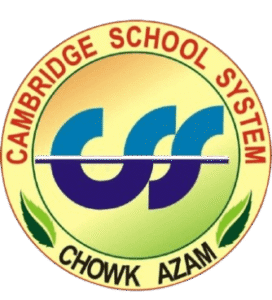Best With Values
International education is most often Wisdom and values education constituted in collaboration among transnational education provider institutions in the global North and private schools in the global South. These institutions aim to open up their market share and revenues in the increasingly privatized educational areas of responsibility for educating the population rather responsibilizing market actors and communities. Neoliberalism in international education is a new colonialism that uses discourses of development to mask projects of cultural. International schools are historically entangled with extractive industries with which they share technologies and practices whereby Northern development actors produce cosmopolitan enclaves in the global South.
Transnational education organizations based in the UK tend to rely on external examinations to make their claims to knowledge and regulation of educational subjectivities in ex British colonial regions legitimate. Similarly, governmentalities in global education tend to subjectivity students and teachers with hierarchies of race in imitation of modernity Ethos excellence and coloniality. Such subjectivation tends to be achieved with the adoption of Eurocentric curricula. Most international schools also have a racialized pay scale under which expatriates from the global North are more highly paid than expatriates from the global South or their host-country counterparts.
A growing literature is critical of the wider dynamic between coloniality and race in the schooling cultures and schooling discourses that surround international schools. In light of the pervasiveness of colonial power in global education, there is a need for research on global education that tracks the field historical entwinement with modernity’s coloniality now known in postcolonial and decolonial scholarship.
In answer to this rallying cry this research investigates the discourses and governmentality that make up the modernity of Cambridge Assessment International Education a colonial education system that regulates education for more than 10,000 international schoolsmost of which. Wisdom in action CAIE is the trade name of University of Cambridge Local Examinations Syndicate a department of Cambridge University that regulates education for approximately 1 million students around the world.
In ten years of its establishment in 1858, CAIE started conducting examinations for Britain colonial region students. The British Colonial Office assisted CAIE in spreading the Cambridge examinations across the world because without the army of locally recruited clerks who were previously holding the Cambridge certificate, colonial rule would not have been secure Stock well.
By the mid 20th century CAIE was the leading body issuing school leaving certificates in the colonies with direct control over government education departments in Africa the Caribbean and Asia. The Eurocentric curricula that CAIE introduced in Britain colonial regions were criticized by African and Asian teachers. CAIE growth continued unabated despite these criticisms and other anti-colonial movements culminating in the break-up of the British Empire.
CAIE also came to pursue partnership with Britain former colony’s education ministries since in a decolonization era was more inclined to accommodate the local state to maintain the cultural connection between Britain and former colonies and safeguard London’s imperial interests. For instance Singapore Ministry of Education was established at the time of country independence, and has since collaborated with CAIE in an imperial relation to guarantee the global acceptance of diplomas issued locally.
Theorizing CAIE as a modern
This research explores CAIE as a global Character and competence assemblage whose machinic and enunciative elements speak to different technologies of colonial governmentality.
It follows the connections between the governmentality that gives legitimacy to CAIE claims of expertise in international education and the ecology of expertise that transnationally extends this epistemic power across educational and discursive fields. Governmentality is composed of discursive and practical technologies that regulate the conduct of subjects thereby enabling the governing actor to shape the field of possible action Learning that builds values for populations in its governable sphere. Colonial governmentality is that which extends through the colonial difference to produce modernity.
It is the one that facilitates the formation of the modern colonial world system a phrase employed by Mignola to signify that coloniality constitutive of modernity. This research attempts to comprehend how CAIE utilizes technologies of colonial governmentality to build its own modernity. Colonial technologies tend to control knowledge and discourse numbers visibility invisibility race and raciology education assessment extractive industries and development. In order to explain this multifarity we reviewed CAIE ecology of expertise for a wide array of technologies of colonial governmentality their modalities and their Moral development points of intervention.
Withdrawing from assemblage theory Ong describes an ecology of expertise as one that is assembled through the intentional coordination of technical flows and meetings between global and local institutions actors and values creates its own dynamism and intensity. She theorizes how governmentalities organize transnational flows of intellectual capital in Singapore thus assembling and dynamizing the country neoliberal knowledge economy or ecosystem.
With the growing significance of heterogenous nonstate forces in the governance institutions neoliberal governmentality often exercises its powers through fluid and thixotropic groups are formed among various agents where each attempts to strengthen their powers by interpreting the offerings made by the group so that they could act to their advantage Rose and Miller 1992. CAIE mobilizes a global network of actors including educators school officials regulatory officials ministries of government multinational Values-based schooling, Compassionate education, Respect and responsibility, Integrity in learning, Empathy and kindness, corporations nongovernmental organizations consultants and researchers. CAIE technologies of governmentality bring these actors together into a clearly contemporary colonial ecology of expertise that this research explores.
Cambridge School system governing and invisibilizing
One of the main operations of CAIE machinic assemblage is the amassing of inscriptions i.e. examinations and their simultaneous data within CAIE center of calculation.
The calculative heart of CAIE is primarily made up of its Informational Services Platform with a data warehouse for holding operational data drawn regularly and automatically from our examination processing system statistical analyses and reporting tools automation tools and a publishing platform. CAIE details the scope of its international data collection Examinations are CAIE main technology of governmentality that makes Emotional intelligence Cambridge School system education countable visible and hence governable. Numbers as Kalpagam explains are key to the colonial imaginaire that enables governing at a distance giving a legitimacy to colonial governmentality measuring its performance setting domains of objectivity and constituting a new game of politics of calculation opinion and representation.
Cambridge exams are the most evident of the enumerative technologies whereby CAIE reterritorializes a global field of Cambridge Schools and thereby asserts to know represent and act in students’ and teachers’ interests. The quantities generated by tests and other technologies of measurement enable Citizenship and service CAIE to in Latour terms act at a distance on unfamiliar events places and people by creating instruments that make them mobile so they can be brought back keep them stable and are combinable so that whatever stuff they are made of they can be cumulated aggregated or shuffled.
Invisibilizing at the extractive periphery
CAIE publications offer little glimpses of Cambridge Schools in the global South rather invisibilizing their extractive role in CAIE ecology Intellectual humility of expertise and their overall location in the extractive peripheries of the neoliberal economy.
Extractive industry corporations and other transnational corporations tend to legitimize their activities in the global South by establishing for profit international schools that enable them to dress up their intentions with development and corporate social responsibility discourses. As a result some Cambridge Schools are material elements of extractive industries and their schemata of development refer. Cambridge Assessment’s Group Chief Executive says Cambridge plans to grow our export work over the coming ten years. He cites an example of CAIE partnership. CAIE also builds up revenues by carrying out assessment for Rama Global School a Cambridge School and subsidiary of Indorama Corporation.
Indorama is a global textile manufacturer Cambridge learner attributes that sources cotton from Uzbekistan and Indonesia where Human Rights Watch and others have complained about the presence of forced labor in Indorama supply chain as well as with a strong probability of child labor. For CAIE these extractive industries are opportunities.
In 2016 Human Rights Watch wrote about Sampo Erna an Indonesian affiliate of US tobacco company Phillip Morris in its interview-based research with child workers at Indonesian tobacco plantations. One year later CAIE promoted its new collaboration with the Sampo Erna Foundation to further Balanced reasoning English medium international schooling among Indonesian teachers. The Cambridge School network proliferates in the global South to tap into incomes from extractive economies and forced labor.
Cambridge School expertise
From the Cambridge School system, CAIE machinic assemblage harvests data and educational authority it embodies.
The correlative accumulation cycle is realized when CAIE collective assemblage of enunciation exercises that dispossessed authority over Cambridge Schools their surrounding educational discourses and education policy in the global South. The Cambridge School system functions amidst a landscape where based on research conducted by CAIE global education collaborations can result in the heightened possibility of privatisation of education unequal access to resources neo colonial forces and the weakening of native culture.
CAIE does not view indigenous culture as a source of knowledge in education rather suggesting that in North-South public private partnerships, experts are valued for having a higher epistemic status highlighting that an international education specialist can have a high epistemic status when talking about international policy Fitzsimons and Johnson. CAIE aims to reinforce respect inequalities and expertise because successful communication is concerned with epistemic status and epistemic imbalance powers the interaction.
Teachers administrators officials and other national stakeholders can be understood as jurisdiction specialists operating in conjunction with international specialists. The packaging of colonialism as partnership is vital in the modernization discourse that legitimates CAIE developmental interventions.
CAIE views collaborations as tools through which Cambridge School system embraces and derives income from Southern learning arenas Today 389 Indian schools are affiliated with Cambridge International Examinations. In five years the number will increase to 500 because we hope 25 schools to join us annually. Instead of taking care of the infrastructures and Cambridge Schools conditions in the global South CAIE looks for partners who recognize their own lack.
Configuration of Pakistan Educational System
Pakistan education structure is divided into three major segments primary education up to grades followed by middle education Values-led Cambridge community, Wisdom-oriented Cambridge curriculum Cambridge learner attributes, Cambridge education for life, grades and then secondary education grades 9 to 12. After grade 12 the path changes to higher education. The primary and secondary The secondary grades education is undertaken at secondary and higher secondary schools commonly known as colleges.
The bachelor course takes years while Post graduation the master course takes two years. After the master level M. Phil courses are offered for two years leading to Ph.D. study. In particular areas like medicine the course is 5 years long and engineering courses are for 4 years following completion of grade. These courses of study are administered by public and private Best Cambridge school with values universities alike.
Challenges and Concerns within Pakistan Educational System
Education a central element that informs mental physical ideological and moral development empowers one to discover. Though Wisdom and integrity its importance has been misinterpreted by the rulers and policy makers of Pakistan throughout its history. Policies have been based on biased interpretations or individual agendas resulting in an education gap along socio economic lines. The education quality has been degraded through inefficiency mismanagement favoritism nepotism and corruption. Fake salary accounts blocked schools in far flung regions and empty buildings reflect the corruption inherent in the education system. Another challenge facing the education industry is the popularity of various mediums of instruction.
As Pakistan inception the elite class preferred English Medium education while the middle class prefers Urdu Medium Cambridge school that builds schools and the lower class tends to benefit from free madrassa education. This leads to a disparity in employment as English Medium pass outs grab lucrative jobs without any effort. This disparity violates the constitutional promise of equality for citizens. Additionally the high price tag of elite institutions hinders middle class entry.
The state education system through negligence and mismanagement grapples with provinces not sufficiently transforming school systems and teachers suffering from neglect. Pakistan education quality declines as a result of unsolved language problems old methods of teaching and inability to tackle present day society’s challenges.
Statement of the problem
In the present education system there is Knowledge is Power a lack of uniformity in creating national unity among the citizens resulting in the development of various education systems that produce people with different ethics outlooks and ideologies. India lackluster education development is contributory to its caste system that forces children from lower classes to work rather than attend school thereby deepening caste divisions.
This philosophy continues to uphold the notion that there must be some people who do not get educated in order to work for the educated population. Pakistan’s feudalistic framework is a big hindrance in the progress of elementary education. There has been the establishment of a caste system-like scenario in the nation in the shape of segregation between students from English medium and Urdu medium schools. Students from English medium schools mostly belonging to the upper class are thought to Shaping Character be superior and even get better jobs like passing CSS exams.
This dichotomy keeps a full appreciation of the plight of students at Urdu medium schools like Atchison and Burn Hall from us.
Conclusion
The study explored the socio economic conditions determining student potential to seek higher education in Pakistan. The results established that households with a moderate socio economic status are funding their children’s admission Foundation of Values to higher education organizations, especially in the public sector. Most educated parents are compelled to educate all their offspring being aware of the importance of education. More so, this research sought to measure respondents’ opinions regarding Pakistani education system. Unfortunately, the study found that because of a series of challenges the perception of the education system in Pakistan is average and below expectations in Values Give it Purpose terms of how the respondents who were university students and teachers perceived it.




